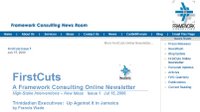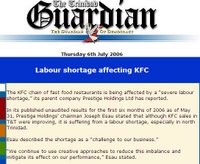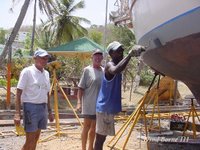 There is a courage that interventions require that most would not recognize, as it has nothing to do with the inner strength required to take public actions.
There is a courage that interventions require that most would not recognize, as it has nothing to do with the inner strength required to take public actions.
Instead, the harder work to do when considering an intervention is internal — some might say it is psychological, or even spiritual.
As an intervenor in something that is not working, there is a place where you must get to where you own the fact that it (or something similar to it) is not working because of you. Whereas this may sound like self-blame, it actually has nothing to do with fault. It can be seen as strictly a matter of efficiency.
The best way to approach a problem, is to discover where, in fact, we are contributing to its continuance and where we perhaps helped to start it in the first place. The reason that this is the best way is not because the intervenor is less moral or more wicked than the rest of those involved.
Instead, it is just quicker and more efficient to work with oneself first, and to seek solutions within oneself, than it is to try to change people, systems or structures outside.
The courage that very few humans have, however, is to do this often enough and long enough to actually get the answers they need.
A senior team I worked with once asked itself — why aren’t our people more motivated? As they were about to spend money on a motivational program, it occurred to a team member (with our help) that maybe it had something to do with them not being motivated themselves.
Now, this may not appear as dramatic as I am making it out to be, but part of what it is to be human, is that we are able to hide considerable chunks of the truth from ourselves. Engaging in the design of High Stakes Interventions starts with a bit of Occam’s Razor — if there is a problem, start with an inquiry into what I have to do with its creation or continuance.
Even as an outsider to a company, I am actually able to ask myself when I am the intervenor, where I also am contributing to the problem, or have done so in the past. For example, on a recent project to develop customer service standards, I myself hate the idea of following standards.
It made me think harder about why. Well, I find standards constricting, especially when they have something to do with what someone else is using force to try to get me to do.
However, when I think about the end-experience I am trying to create in the world of the customer, and standards are seen as predetermined shortcuts, I become excited. It lead me to think about how to design my newsletter in an entirely different way — starting with the experience I wanted my readers to have.
Then, creating standards for myself was easy — even the kinds that no-one would ever notice. It gave me an insight into how to talk about standards with Caribbean employees, who are particularly resistant to even the appearance of force.
The best intervenors I have worked with are the ones who are the most disciplined in this method of self-inquiry, and are also the most courageous.







